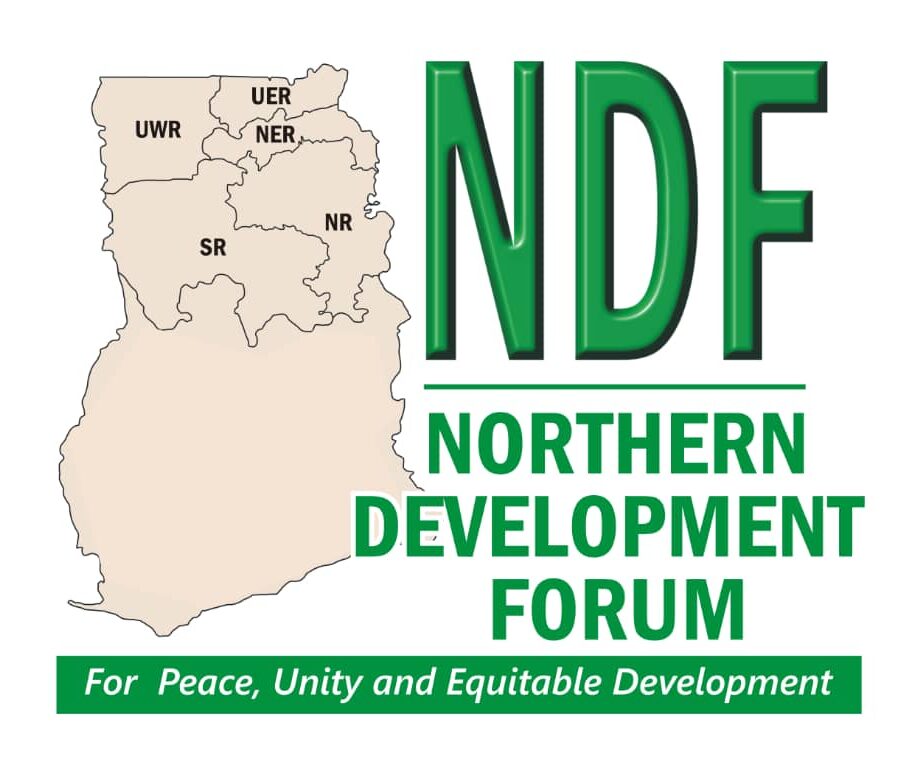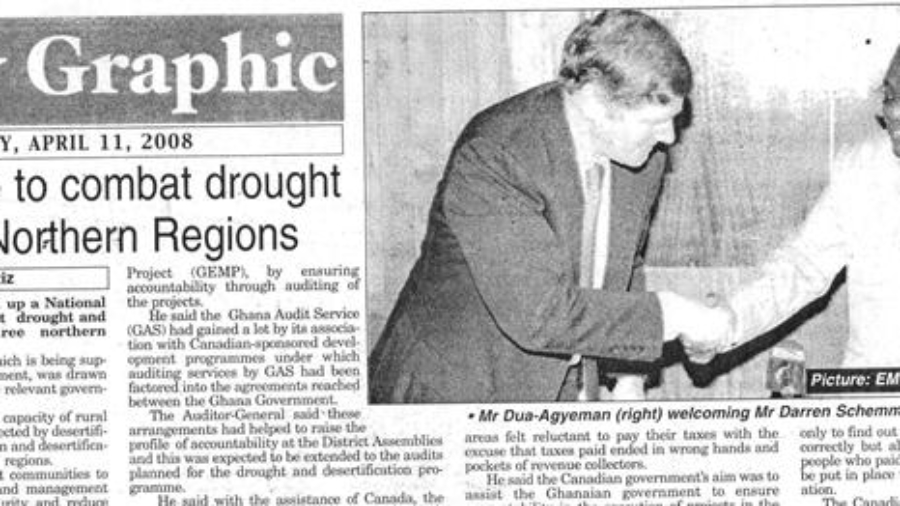DAILY GRAPHIC
FRIDAY, APRIL 11, 2008
MP CALLS FOR LI ON NORTHERN FUND
STORY BY: SAMUEL ABAANE, BOLGATANGA
The government has been asked to pass a Legislative Instrument (LI) that will spell out the administrative instruments, legal boundaries and activities of the Northern Ghana Development Fund (NGDF).
In the absence of that, the fund can be regarded as another one of the many initiatives established by governments to whittle down people’s concerns over what has now become the north-south divide.
The Member of Parliament (MP) for Mion in the Northern Region, Dr. Alhassan Ahmed Yakubu, made the call in Bolgatanga when he delivered a paper on, “The Northern Ghana Development Fund: Issues of Concern”, at the just-ended Northern Easter School.
The Northern Easter School, which was held on the theme: “Setting a Development Agenda for Northern Ghana”, was aimed at setting up a new development agenda for northern Ghana.
The Institute of Adult Education of the University of Ghana was the organizer of this year’s school, which is rotated among the three northern regions.
The general public, development consultants, teachers, labour-unions, district assemblies, politicians and academia usually participate in the deliberations of the school.
The MP, who is also a Ranking Member of the Committee of Food, Agriculture and Cocoa Affairs, said northern Ghana had what it took to be more economically independent but said what was lacking was the political and social mobilization attitude that would convert that potential into economic benefit.
He noted that northern Ghana was disadvantaged in terms of numbers and the complement of experts dealing with national development policies.
“Currently, there is likely to be no northern representation on the National Development planning commission (NDPC) and other very important national bodies set up to determine the development agenda of the country,” the MP explained.
Dr. Yakubu suggested that the NDPC should have a decentralized ownership as an essential ingredient in order to make development more equitable.
He also suggested of a Northern Ghana Development Planning Commission based in the north to see to the transparent administration of the NGDF.
“its popularity should rather make the government invest more in the relevant areas of northern Ghana and not reduce national budget allocation to the north because of the invisibility of regional allocation in the budget,” he stressed.
The MP pointed out that agricultural development, with a strong sustainable environmental protection dimension, must be an important instrument for development in capturing projects aimed at the economic emancipation of the north.
Such projects, he indicated, should engage the entire value chain, rather than the current system that exported wealth out of the region, since value addition remained rudimental in northern agriculture.
Also delivering a paper on “Special Initiative on Sustainable Development of Northern Ghana” a policy analyst at the office of the president Mr. Ernest Patrick Mallet, said the government, having realized that the socio-economic development gap between the northern region and the rest of the country could not be easily bridged with budgetary allocation alone, decided in its 2008 budget to the institute a “Special Initiative on Sustainable Development of Northern Ghana.”
“Closing the gap will not be event that will occur in time but it is a process that will take time, continuous efforts and commitment to see it through.” He said.
He said it should be a process that would take the whole country to the achievement of at least all the Millennium Development Goals (MDGs) simultaneously.
The policy analyst urged the participants to consider innovative ways of making the NGDF seed money of GH₵25 million to grow, since budgetary source alone might not be adequate to meet the expected high expenditure in implementing the initiative.
PROGRAMME TO COMBAT DROUGHT IN THREE NORTHERN REGIONS
DAILY GRAPHIC
FRIDAY, APRIL 11, 2008
PROGRAMME TO COMBAT DROUGHT IN THREE NORTHERN REGIONS
STORY BY: ABDUL AZIZ
The Government had drawn up a National Action Programme to combat drought and desertification in the three northern regions.
The five-year programme, which is being supported by the Canadian Government, was drawn up in close collaboration with the relevant government institutions.
The aim is to strengthen the capacity of rural institutions and communities affected by desertification to reverse land degradation and desertification trends in the three northern regions.
The project would also assist communities to adopt sustainable water and land management systems that improve food security and reduce poverty.
This came to light when the Canadian High Commissioner in Accra, Mr. Darren Schemmer, paid a courtesy call on the Auditor-General, Mr. Edward Dua-Agyeman, at his office yesterday.
Mr. Dua-Agyeman said the audit service was ready to collaborate with the implementing agency, the Ghana Environment Management Project (GEMP), by ensuring accountability through auditing of the projects
He said the Ghana Audit Service (GAS) had gained a lot by its association with Canadian-sponsored development programmes under which auditing services by GAS had been factored into the agreements reached between the Ghana Government.
The Auditor-General said these arrangements had helped to raise the profile of accountability at the District Assemblies and this was expected to be extended to the audits planned for the drought and desertification programme.
He said with the assistance of Canada, the government has established a liaison office at the Ringway Estates for the Public Accounts Committee and the Audit Service.
Mr. Dua-Agyeman assured the high commissioner that the seventh report of the Public Accounts Committee would be presented to Parliament in June, this year.
Mr. Schemmer said often people in the rural areas felt reluctant to pay their taxes with the excuse that taxes paid ended in wrong hands and pockets of revenue collectors.
He said the Canadian government’s aim was to assist the Ghanaian government to ensure accountability in the execution of projects in the rural areas by ensuring proper auditing of projects to reduce the incidence of corruption.
He explained that when the rural people began to see that their taxes were being put to good use, they would readily endeavor to meet their tax obligation promptly as studies had shown.
Mr. Schemmer said auditing, therefore, was not only to find out whether the funds had been used correctly but also to study the behavior of the people who paid the taxes so that measures could be put in place to ensure their maximum co-operation.
The Canadian High Commissioner expressed satisfaction that sanctions based on audit reports by GAS had made District Assemblies executing Canadian-founded projects to sit up.
Mr. Schemmer noted that the positive impact could be replicated in all the other sectors in the District Assemblies to ensure accountability in every sphere of district assembly operations.

